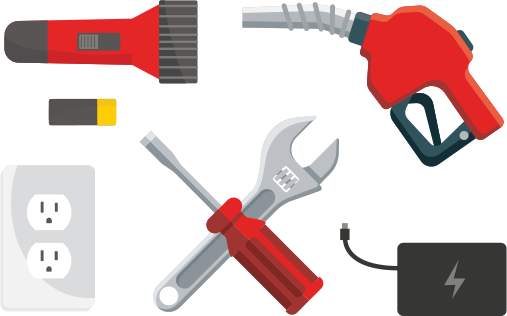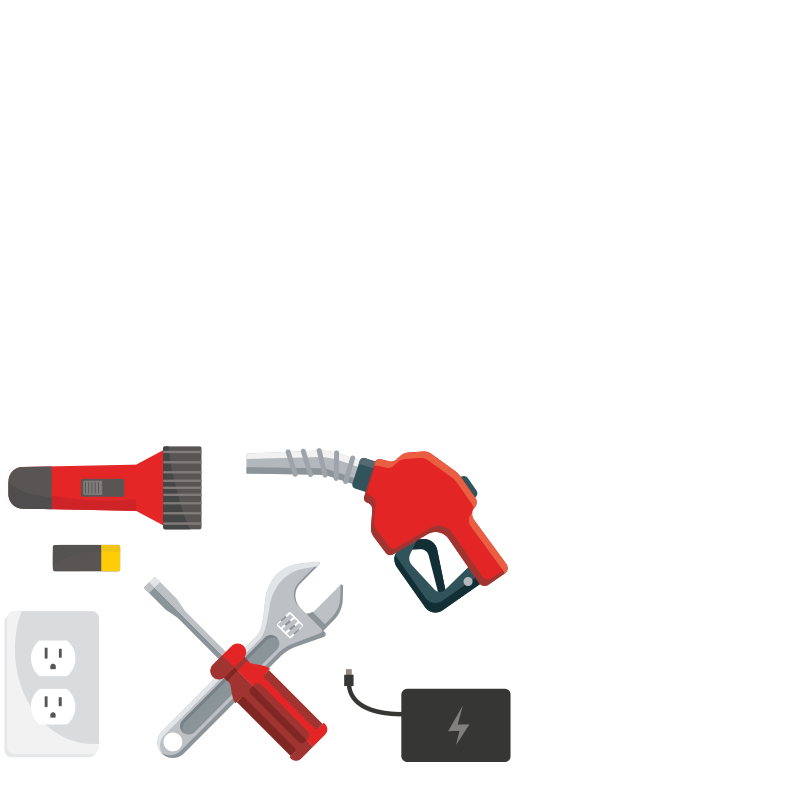Be prepared for a power outage
Most power outages will be over almost as soon as they begin, but some can last days or even weeks. Power outages are often caused by severe weather or high winds, which damage power lines and equipment.


Before the power goes out
- Have emergency light sources (flashlights with extra batteries).
- If you don’t have a traditional corded phone, ensure you have a cell phone battery pack fully charged.
- If you are on home oxygen or have any other life-sustaining equipment in your home, contact the service provider to learn the details of their emergency contingency plan in the event of a power outage.
- If you have an electric garage door opener, make sure there is an emergency handle in place and learn how to operate the door without power.
- Do not open your refrigerator or freezer unless it is absolutely necessary. A refrigerator will typically keep food cold for 4-6 hours and a full freezer approximately two days with the doors closed.
- Install surge protectors in your home to safeguard valuable electronic equipment, such as computers and home entertainment systems.
- Know where to find each utility shut off — electricity, water and gas. Know how to turn each utility off and make sure you have the proper tools to do so.
- Always keep your vehicle’s gas tank half full.
When power is restored
- Turn on only the most essential appliance first to give the electrical system a chance to stabilize. Wait 10 to 15 minutes before reconnecting other appliances.
- Check your fridge and freezer to ensure they are back on. Follow Health Unit Guidelines to determine if food may be at risk of spoilage (as some may not be visibly spoiled).
- Replace any items from your Emergency Kit that you may have used so you are prepared for future emergencies.
Use of home generators

Home generators are handy for back-up electricity in case of an outage, but must only be used in accordance with the manufacturer’s guidelines.
A back-up generator may only be connected to your home’s electrical system through an approved transfer panel and switch that has been installed by a qualified electrician.
Never plug a generator into a wall outlet as serious injury can result when the current produced by the home generator is fed back into the electrical lines, and transformed to a higher voltage. This can endanger the lives of utility employees working to restore the power.